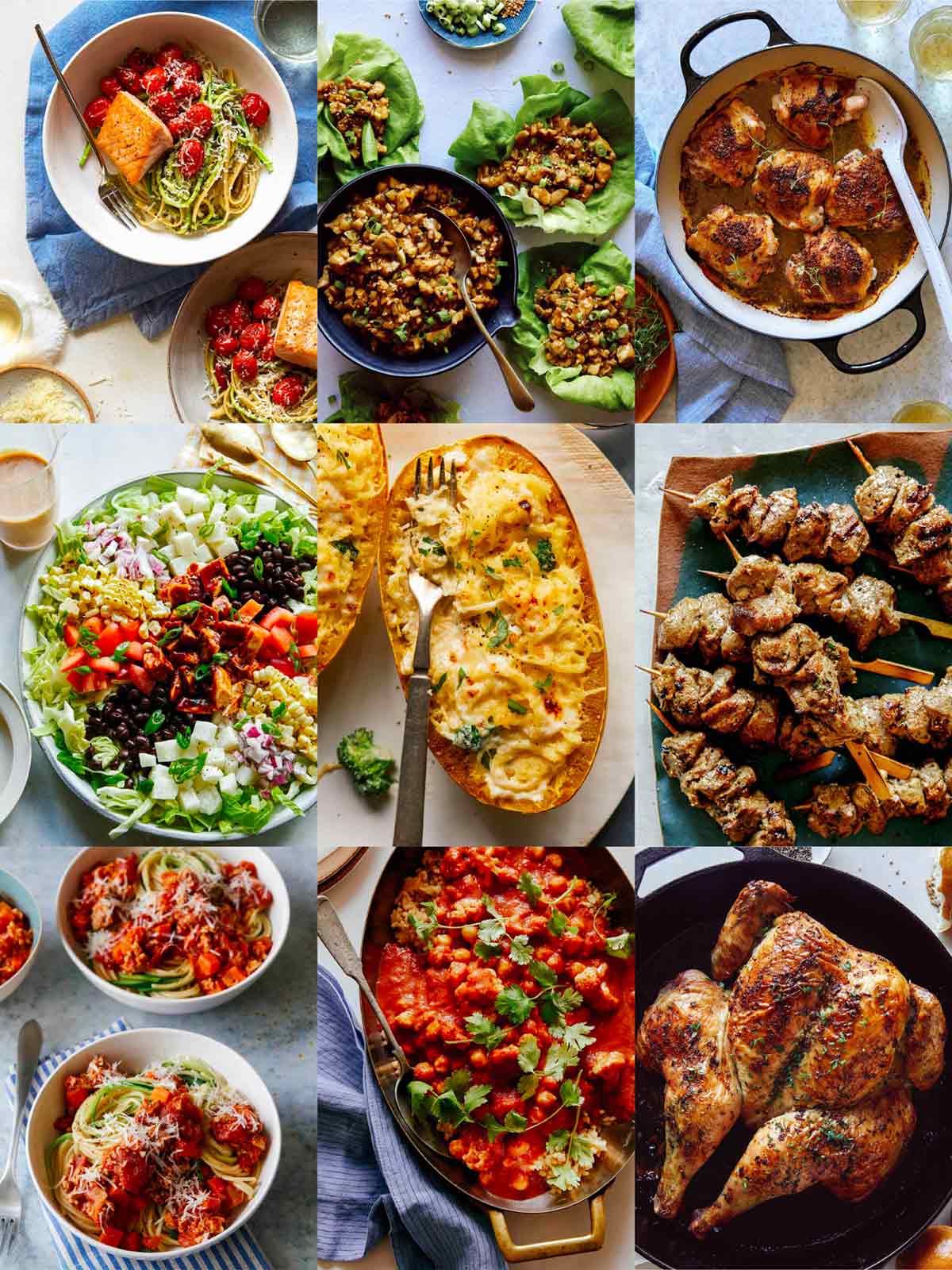Ultimate Parent’s Guide to Great Healthy Dinner Ideas
Introduction
Hello, wonderful parents! Feeling like you’re stuck in a food rut? Juggling a busy schedule and trying to provide your family with nutritious meals? Let’s not fret! We have your back. Say goodbye to pre-made foods and hello to fresh, easy-to-make, nutritious, family-friendly dinner ideas. Let’s dive into a world of vibrant veggies, wholesome grains, high-quality proteins and much more.
Why Choose Healthy Dinners?
As parents, we all aim for our children to be happy, healthy, and full of energy. A big part of achieving that is by setting a strong foundation build on a healthy diet. So, why not start with their last main meal of the day – dinner. Beyond providing essential nutrients, a wholesome dinner can help regulate energy levels, improve sleep and promote overall health.
The Importance of A Balanced Meal
At dinner time, we need to strive for a well-rounded meal. This means integrating a good mix of carbohydrates, protein, and fats. Plus, lots of fruits and veggies for that extra boost of vitamins and minerals. A balanced meal ensures your children get a wide spectrum of nutrients, keeping them active and healthy.
Great Healthy Dinner Ideas
Ready to get cooking? Here’s a sneak-peek into some scrumptious, yet healthy, dinner ideas that are certain to be a hit in your household.
Energizing Quinoa Salad
Quinoa is a delightful grain loaded with protein and fiber. Color up this superfood with chunky fresh veggies like sweet corn, bell peppers, and cherry tomatoes. Toss together with your favorite low-fat dressing for a powerhouse, protein-packed salad.
Baked Lemon Herb Chicken
Mix up your usual chicken dinner with this light and zesty twist. Marinate chicken breasts in lemon juice, garlic, and herbs, then bake to perfection. Pair with a side of steamed broccoli and brown rice for a comforting, balanced meal.
Hearty Vegetable Soup
Nothing warms the tummy quite like a soothing bowl of soup. This soup, loaded with an array of colorful veggies, offers a big nutrition punch. Serve this with a side of whole-grain dinner rolls, and you’ve got a cozy dinner ready to go.
There’s so much more to discover, so let’s continue the journey towards nutritious, delicious, and fun family dinners!

Mindful Pizza Night
Who said pizzas can’t be healthy? Swap out the traditional pizza base with whole grain or cauliflower crust, use low-sodium tomato sauce, loads of colorful vegetables and lean proteins like grilled chicken or turkey. Sprinkle with a moderate amount of cheese, and voila, a beloved comfort food turned healthy!
Tofu Stir-Fry
Fast, flavorsome and filled with nutrients, tofu stir-fry is an all-round winner. Sauté colorful veggies like bell peppers, carrots, green beans with cubes of tofu in a splash of soy sauce for a quick yet wholesome dinner. Serve this over an optional helping of steamed brown rice.
Final Tip: Involve Your Children
One exciting way to get your little ones excited about these healthy dinner options is to involve them in the cooking process. Not only does this teach them valuable life skills, it also provides an opportunity for quality family time. Instilling healthy eating habits from a young age helps kids grow into health-conscious adults.
Conclusion
There you have it! We’ve equipped you with a variety of nutritious dinner ideas that will add color and flavor to your meal times whilst supercharging your family with essential nutrients. Remember, nutrition is vital, but dinner time is also all about connection, conversation, and of course, lots of smiling faces. So sit back, enjoy each bite, and cherish these precious moments filled with fun, nutrition, and love. Here’s to happy, healthy eating!
Preparing for Great Healthy Dinner Ideas: 5 Things Every Parent Should Know
In the journey of raising healthy kids, the dinner table can play a significant role. Nutrition, taste and variation are key in creating healthy meal options and building beneficial dietary habits. Here are five pointers parents should know when preparing for great healthy dinner ideas:
1. Balance is Everything
A balanced meal is the basis of healthy eating. Dinner should contain a good mix of macronutrients – proteins, carbs, and fats. It is also crucial to incorporate a variety of nutrients from different food groups, including vegetables, fruits, grains and proteins.
2. Appreciate Whole Foods
Whole foods are nutrient-dense and less processed than many other options. They provide essential nutrients and fiber that kids need for growth and development. Evolve your dinner ideas around whole foods like fruits, vegetables, whole grains, lean meats, and dairy products.
3. Keep it Colorful and Fun
Dinner time is also an opportunity to educate your kids about different foods. Make the dinner plate a colorful array of foods to make it more appealing and exciting for your child. Incorporate different colored fruits and vegetables to ensure they’re getting a wide range of nutrients.
4. Get Kids Involved
Children are more likely to eat the food they’ve helped prepare. This can also be an excellent opportunity to teach them about nutrition and instill healthy eating habits. By making dinner preparation a fun activity, kids can learn to love and appreciate a variety of foods.
5. Plan Ahead
Planning your meals in advance saves you time, effort, and reduces the convenience food temptation. Having a weekly or monthly dinner plan also promotes variety and ensures your kids are getting balanced meals consistently.
Remember, the goal is not just to cook a healthy dinner, but to shape a positive eating experience for your children that contributes to their overall wellbeing and growth.
For more great articles please see here. For more information see here
Disclaimer
The articles available via our website provide general information only and we strongly urge readers to exercise caution and conduct their own thorough research and fact-checking. The information presented should not be taken as absolute truth, and, to the maximum extent permitted by law, we will not be held liable for any inaccuracies or errors in the content. It is essential for individuals to independently verify and validate the information before making any decisions or taking any actions based on the articles.




